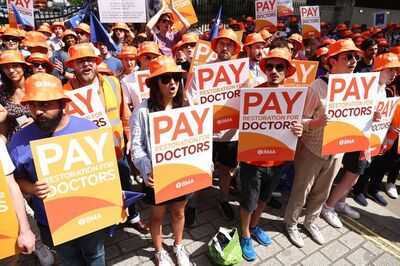
A doctor has told how he faces unemployment despite a shortage in the NHS on the eve of a five-day strike.
Dr Jacob McSweeney is one of 20,000 young doctors who cannot get permanent employment in the NHS because of a “bottleneck” in the training pipeline. As well as pay, the thorny issue of unemployment bottlenecks is one of the reasons the British Medical Association (BMA) is staging the walkout from 7am tomorrow which is expected to see thousands of treatments cancelled.
Dr McSweeney, 25, from Lancaster, has completed his first two years of training working in the NHS but is now jobless apart from irregular temping shifts because there are not enough training places at NHS hospitals in England.
READ MORE: Wes Streeting 'fury' at doctors' union BMA 'threatening the future of the NHS'
READ MORE: NHS waiting list falls as Wes Streeting says service ‘on road to recovery’
These are speciality training places that doctors move into after the first two years of work after university and are the next stage in a doctors’ career on the path to becoming a consultant, which can take eight years.
Jacob told the Mirror: “I haven’t been able to get a locum shift for two weeks and there’s no guarantee I’ll be able to pay my rent at the end of the month. I’ve been doing this since August and for the first few months the uncertainty was genuinely terrifying. There are so many patients needing to see doctors and I’m sat at home desperate to work.”
The 10-year NHS plan published in early summer pledged an extra 1,000 training places by 2028. However there were more than 30,000 doctor applicants for 10,000 jobs at this two-year stage this year.
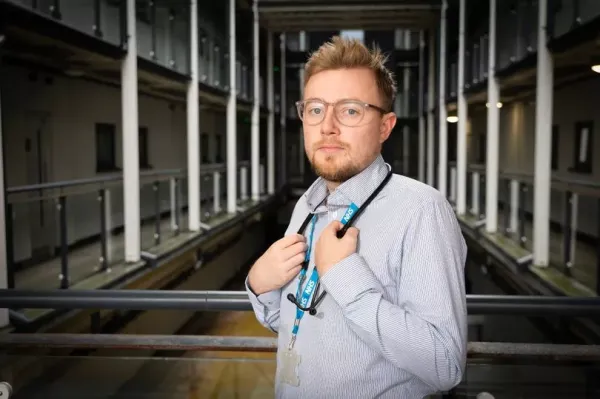
Many of these 30,000 applicants will be doctors from abroad and Jacob is calling for a job guarantee for UK trained doctors who have given two years service to the NHS.
For those that cannot get a training place a typical option is to work locum shifts to cover doctors when they are off sick.
Jacob has been doing this but, such is the supply of doctors needing work at this stage, shifts can be hard to come by. He said: “I’ve given the last two years of my life to the NHS and now find I haven’t got a job. It’s like a punch to the stomach.
“I always felt that even if I won the lottery I would continue to work in the NHS because I loved being a doctor. But over time lots of things grind you down.
“The strike is really difficult because doctors never want to go on strike but we’re aware if the workforce continues on its current trajectory then we’re not going to have an NHS that can meet the population’s needs. The demand on the NHS is growing. It does make you think ‘is this profession for me?’ Why would anyone want to continue in a profession that doesn’t feel valued.”
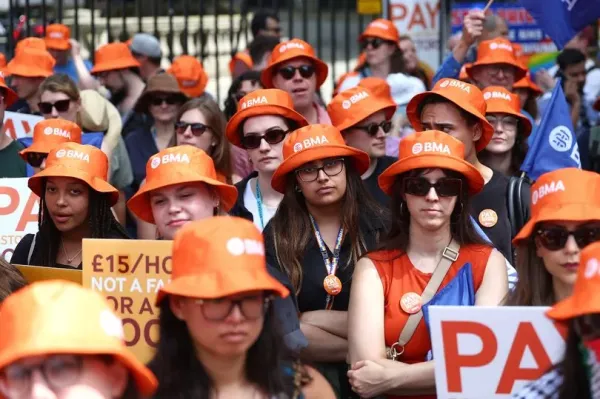
The BMA is calling for a commitment to increase pay by 26% over the next few years. The BMA points to pay erosion since 2008 saying real terms salaries are down a fifth since then, according to the Retail Price Index measure of inflation.
The Government’s preferred measure of inflation is the Consumer Price Index - which excludes mortgage and permanent housing costs - shows average resident doctor salaries down 5% since 2008.
Mr Streeting has pointed out that by any measure their pay has been increasing in real terms in recent years, including their latest 5.4% deal for 2025/26.
-
Bihar Assembly election results 2025 LIVE: Counting of votes begin
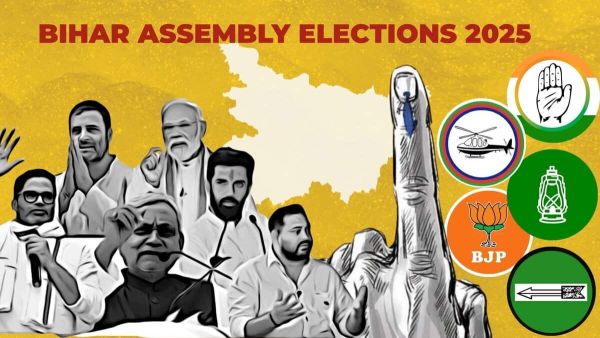
-
Bypolls Results 2025: Counting Begins On Budgam, Tarn Taran, Jubilee Hills, And 5 Other Seats
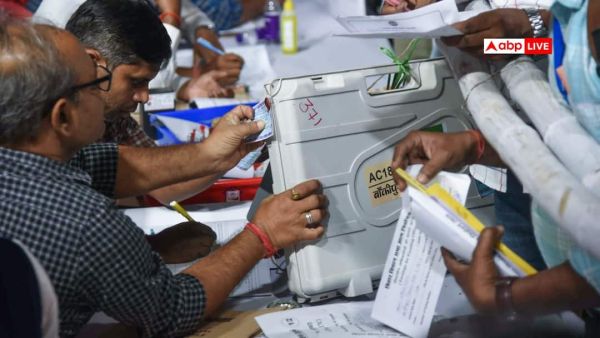
-
'My Relationship With Tejashwi Is Over': Estranged Tej Pratap Yadav Vows Never To Return To RJD
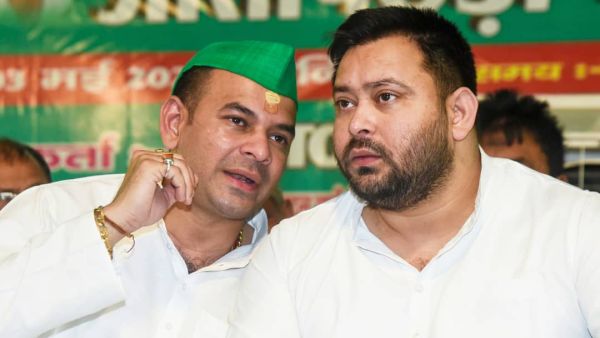
-
Meghan Markle faces mortifyingly major blow that will ruin her Christmas

-
Prediabetes prevention: Why your diet and exercise pattern matter even more
